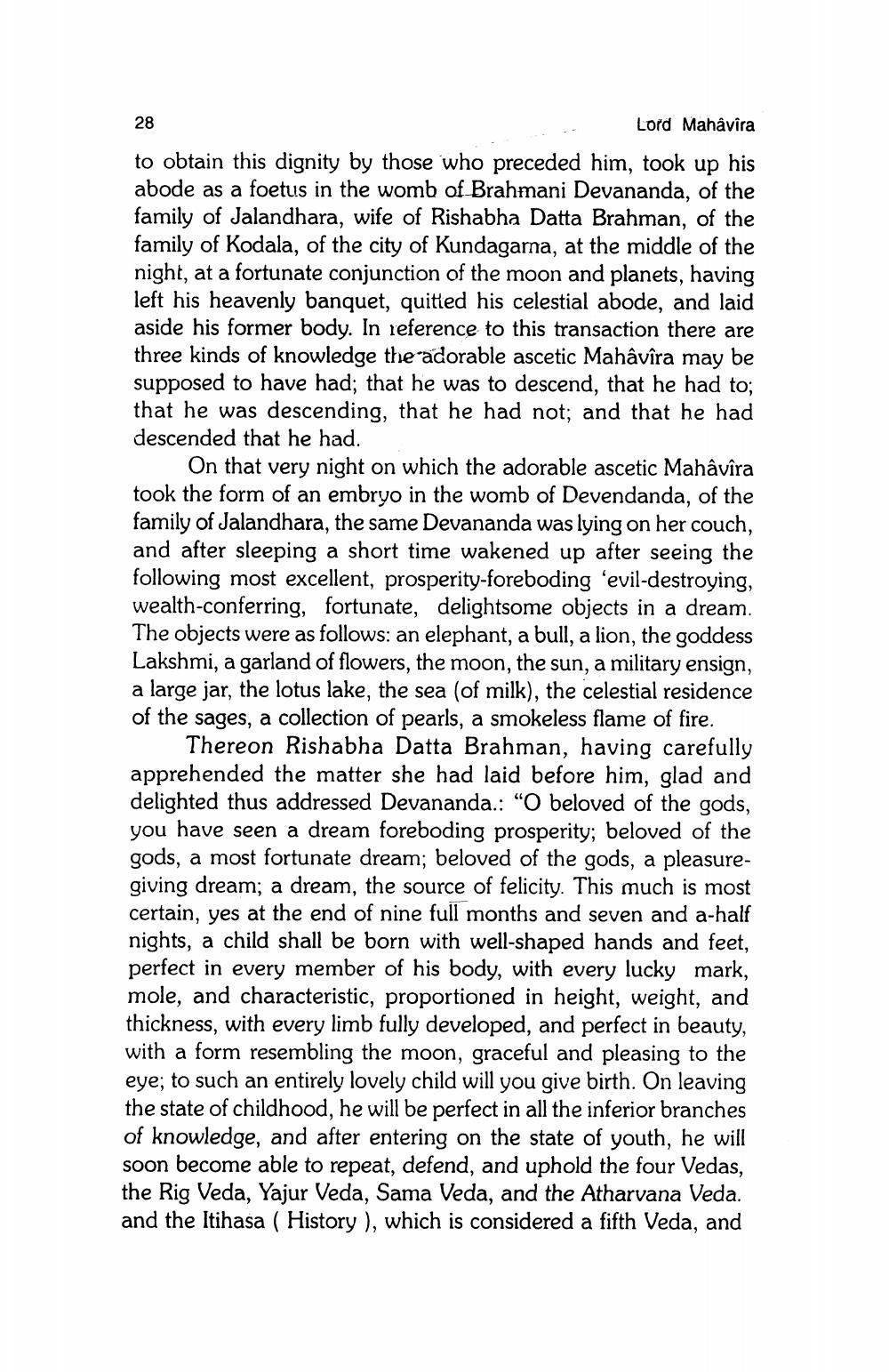________________
28
Lord Mahâvîra
to obtain this dignity by those who preceded him, took up his abode as a foetus in the womb of Brahmani Devananda, of the family of Jalandhara, wife of Rishabha Datta Brahman, of the family of Kodala, of the city of Kundagarna, at the middle of the night, at a fortunate conjunction of the moon and planets, having left his heavenly banquet, quitted his celestial abode, and laid aside his former body. In reference to this transaction there are three kinds of knowledge the adorable ascetic Mahâvîra may be supposed to have had; that he was to descend, that he had to; that he was descending, that he had not; and that he had descended that he had.
On that very night on which the adorable ascetic Mahâvîra took the form of an embryo in the womb of Devendanda, of the family of Jalandhara, the same Devananda was lying on her couch, and after sleeping a short time wakened up after seeing the following most excellent, prosperity-foreboding 'evil-destroying, wealth-conferring, fortunate, delightsome objects in a dream. The objects were as follows: an elephant, a bull, a lion, the goddess Lakshmi, a garland of flowers, the moon, the sun, a military ensign, a large jar, the lotus lake, the sea (of milk), the celestial residence of the sages, a collection of pearls, a smokeless flame of fire.
Thereon Rishabha Datta Brahman, having carefully apprehended the matter she had laid before him, glad and delighted thus addressed Devananda.: "O beloved of the gods, you have seen a dream foreboding prosperity; beloved of the gods, a most fortunate dream; beloved of the gods, a pleasuregiving dream; a dream, the source of felicity. This much is most certain, yes at the end of nine full months and seven and a-half nights, a child shall be born with well-shaped hands and feet, perfect in every member of his body, with every lucky mark, mole, and characteristic, proportioned in height, weight, and thickness, with every limb fully developed, and perfect in beauty, with a form resembling the moon, graceful and pleasing to the eye; to such an entirely lovely child will you give birth. On leaving the state of childhood, he will be perfect in all the inferior branches of knowledge, and after entering on the state of youth, he will soon become able to repeat, defend, and uphold the four Vedas, the Rig Veda, Yajur Veda, Sama Veda, and the Atharvana Veda. and the Itihasa (History), which is considered a fifth Veda, and




